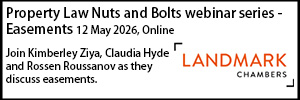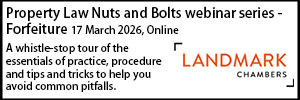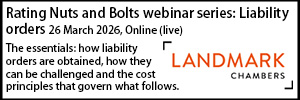Catalogue
Employment webinar: Managing settlements: the legal and practical issues, and the pitfalls to avoid
The Planning and Infrastructure Bill – what’s in, what’s out and will it work?
Devolution and Local Government Reorganisation: the planning perspective
Procurement Act 2023 webinar: Key Update
Public Law Update Webinar
ICO tells Olympic legacy body to disclose details of deal with West Ham
- Details
The Information Commissioner has ordered the London Legacy Development Corporation (LLDC) to disclose parts of the concession agreement it entered into with Premier League football club West Ham.
After the complainant requested a copy of the concession agreement, which allows West Ham (WHUFC) to use the Olympic Stadium from the 2016/17 season onwards, the LLDC provided a redacted version.
It withheld information contained within the document under various exemptions provided by the Freedom of Information Act:
- ‘law enforcement’ (section 31(1));
- ‘health and safety’ (section 38(1));
- ‘personal information’ (section 40(2)); and
- ‘commercial interests’ (section 43).
The Commissioner was only asked to consider the commercial aspects of the tenancy agreement.
His decision was that section 43(2) and the ‘information provided in confidence’ (section 41) exemption, which was introduced by West Ham, were not engaged with regard to the specified elements of the agreement.
The Commissioner noted that the arguments underpinning both the LLDC’s and the football club’s position were that disclosure would reveal elements of a business strategy which could be exploited by competitors.
The Commissioner said he acknowledged that the agreement included specific details of the terms on which West Ham used the Olympic Stadium and the obligations placed on the club based on its performance. He also accepted that at the time of the request contracts relating to some of the services provided by the stadium had still to be negotiated.
However, the Commissioner said the LLDC and West Ham had failed to demonstrate the specific way that the information at issue could be exploited by a competitor and, or how disclosure would place either party at a commercial disadvantage.
“In coming to this view, the Commissioner does not dispute that WHUFC operates in a highly competitive field. Yet, the Commissioner also considers that the terms of the Agreement that have been requested do not drill down to the specific business model adopted by WHUFC,” he said.
“Although other Premiership clubs would not be subject to the same level of scrutiny, the Commissioner has found that WHUFC has not shown a direct link between the terms of the Agreement that are actually being withheld and the prejudice cited. Equally, the Commissioner considers that the LLDC’s arguments fail for this same reason.”
The Commissioner acknowledged the LLDC’s concern that West Ham might sue for breach of confidence if the club considered that disclosure breached the confidentiality agreements between the parties.
But he said West Ham would have known that it would be subject to FOIA when the agreement was signed.
The Commissioner considered that the same approach to confidentiality clauses or contracts in public sector contracts, as set out in his guidance, should be adopted. He said he did not accept that the existence of a confidentiality agreement necessarily demonstrated that the exemption was engaged.
As the prejudice test in section 43(2) had not been met and the exemption not engaged, the Commission did not go on to consider the public interest in disclosure.
The Commissioner added that he did not share West Ham’s view that section 41 (‘information provided in guidance’) applied. He considered that the agreement effectively represented a contract between the E20 Stadium Partnership (the LLDC and London Newham Council) and West Ham.
He highlighted his guidance, which says that the contents of a contract between a public authority and a third party generally would not be information obtained from another person. The Commissioner said that the disputed information constituted mutually agreed terms and therefore section 41 did not apply.
The Commissioner therefore required the LLDC to disclose the information to ensure compliance with the legislation.
Responding to the ICO ruling, a coalition of 14 supporters’ trusts behind the FOI request called on London Mayor Boris Johnson and the LLDC to ensure the full publication of the commercial terms of the contract.
The coalition said: "The Information Commissioner's decision could not have been clearer, and it is equally clear to us that publication must follow. This campaign is publicly backed by 25,000 individuals, football supporters’ trusts from around the country, and the public interest in the issue is there for all to see.
“We call on the mayor not to use the appeal system to delay publication of this document further. If he does it will open him up to the suspicion that he has something to hide.
“This is an issue about the use of public money to, apparently, subsidise a commercial football business. It seems the taxpayer will be paying the cost of a series of overheads which every other club, rightly, has to pay for themselves. It is important that the taxpayer is allowed to know exactly what has gone on here, and to judge whether it is a responsible and fair use of public money.”
Head of Legal Services / Deputy Monitoring Officer
Legal Director - Government and Public Sector
Poll
|
Click here to view our archived articles or search below.
|
Latest Webinars

Employment webinar: Managing settlements: the legal and practical issues, and the pitfalls to avoid

The Planning and Infrastructure Bill – what’s in, what’s out and will it work?

Devolution and Local Government Reorganisation: the planning perspective

Procurement Act 2023 webinar: Key Update

Public Law Update Webinar

Inquiry Law webinar series — Session 3: Challenging (& Challenge Proofing) Inquiries

Inquiry Law webinar series - Session 2: Issues of Evidence

NHS Legal Framework Webinar Series - Masterclass on NHS Continuing Care for Adults and Children

Homelessness and Social Housing Allocations (Wales) Bill: all change?

Property Nuts and Bolts (Part 5) – Disrepair claims and counterclaims
|
ABOUT SHARPE PRITCHARD
We are a national firm of public law specialists, serving local authorities, other public sector organisations and registered social landlords, as well as commercial clients and the third sector. Our team advises on a wide range of public law matters, spanning electoral law, procurement, construction, infrastructure, data protection and information law, planning and dispute resolution, to name a few key specialisms. All public sector organisations have a route to instruct us through the various frameworks we are appointed to. To find out more about our services, please click here.
|
Featured Events
 Court of Protection Property and Financial Affairs Webinar Series: Contested Statutory Will Application - 39 Essex Chambers
Court of Protection Property and Financial Affairs Webinar Series: Contested Statutory Will Application - 39 Essex Chambers
02-03-2026
Online (live)
 Housing and Homelessness Conference - Birmingham 2026 - 4-5 Gray's Inn Square
Housing and Homelessness Conference - Birmingham 2026 - 4-5 Gray's Inn Square
03-03-2026 9:30 am
East Midlands
 Law Enforcement Data Processing and Part 3 of the DPA 2018 - Act Now
Law Enforcement Data Processing and Part 3 of the DPA 2018 - Act Now
05-03-2026 10:00 am
Online (live)
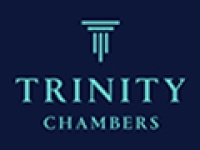 Cross-Border Placements of Children - Justin Gray, Trinity Chambers
Cross-Border Placements of Children - Justin Gray, Trinity Chambers
05-03-2026 3:00 pm
Online (live)
 The Case for Ecocide Law: In Conversation with Gerard Forlin KC and Jojo Mehta - Cornerstone Barristers
The Case for Ecocide Law: In Conversation with Gerard Forlin KC and Jojo Mehta - Cornerstone Barristers
05-03-2026 5:00 pm
London
 Grappling with S73 - variations of conditions applications or appeals - Ivy Legal
Grappling with S73 - variations of conditions applications or appeals - Ivy Legal
09-03-2026
Online (live)
 HMPL Building Blocks: Tenancy Management – Assignment, Mutual Exchange and Succession - Devonshires
HMPL Building Blocks: Tenancy Management – Assignment, Mutual Exchange and Succession - Devonshires
12-03-2026
Online (live)
 AI and Information Governance: Bridging Innovation and Compliance - Act Now
AI and Information Governance: Bridging Innovation and Compliance - Act Now
12-03-2026 10:00 am
Online (live)
 Damages and other remedies in claims against HE institutions - 3PB
Damages and other remedies in claims against HE institutions - 3PB
12-03-2026 11:00 am
Online (live)
 Housing Act 2004 & the Private Rented Sector – where are we now? - Cornerstone Barristers
Housing Act 2004 & the Private Rented Sector – where are we now? - Cornerstone Barristers
16-03-2026 11:00 am
Online (live)
 Property Law Nuts and Bolts webinar series - Forfeiture - Landmark Chambers
Property Law Nuts and Bolts webinar series - Forfeiture - Landmark Chambers
17-03-2026
Online (live)
|
OUR KEY LOCAL GOVERNMENT CONTACTS
|
||
|
Partner 020 7406 4600 Find out more |
||
|
Partner 020 7406 4600 Find out more |
||
|
Rachel Murray-Smith Partner 020 7406 4600 Find out more |



























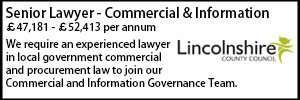






 The SEND White Paper: the legal perspective - Landmark Chambers
The SEND White Paper: the legal perspective - Landmark Chambers  The General Data Protection Regulation - Act Now
The General Data Protection Regulation - Act Now  Data protection Conference - Hugh James
Data protection Conference - Hugh James  Contract modifications under the Procurement Act 2023 - DWF
Contract modifications under the Procurement Act 2023 - DWF  Certified Data Protection Officer Training (CDPO) - The Training Centre
Certified Data Protection Officer Training (CDPO) - The Training Centre 
 Catherine Newman
Catherine Newman






